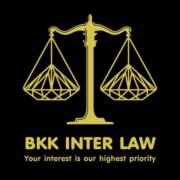About Mining Law in Thailand
Mining Law in Thailand refers to the body of laws, regulations, and governmental policies that govern the exploration, extraction, processing, and management of mineral resources within the country. The legal landscape for mining activities is comprehensive and aims to balance economic growth, environmental sustainability, and community welfare. The principal law regulating mining activities in Thailand is the Minerals Act B.E. 2560 (2017), which sets out the framework for acquiring mining rights, conducting operations, and compliance obligations.
Why You May Need a Lawyer
Individuals and businesses often require legal assistance in Mining Law for several reasons. Obtaining mining licenses and permits can be complex, with many steps and requirements that must be fulfilled. Legal advice is helpful when navigating the bid process for mineral concessions, negotiating joint ventures or investment agreements, or facing disputes over land rights and environmental compliance. Furthermore, ongoing regulatory changes and the potential for criminal or civil liability mean having expert legal support is invaluable for risk management and compliance assurance.
Local Laws Overview
The key legislation governing mining in Thailand is the Minerals Act B.E. 2560 (2017), which replaced previous versions to modernize the regulatory environment. Under this act, all mining operations must obtain appropriate licenses from the Department of Primary Industries and Mines (DPIM). The law establishes different types of mining licenses, such as:
- Prospecting License - for preliminary exploration
- Exploration License - for more detailed investigation
- Mining License - authorizing commercial operations
Thai law also emphasizes environmental impact assessment (EIA), requiring that most mining projects secure EIA approval before operations commence. The law imposes strict rules around environmental protection, mine closure and rehabilitation plans, and community consultation. Foreign ownership is subject to specific restrictions, often requiring joint ventures or limited foreign participation in certain areas.
Frequently Asked Questions
What permits are required to start a mining operation in Thailand?
You must obtain a Prospecting License for initial exploration, an Exploration License for detailed investigations, and a Mining License for actual mineral extraction and operation. Each permit has different requirements and application processes enforced by the DPIM.
Can foreigners own mining rights in Thailand?
Foreigners can participate in mining ventures but are subject to restrictions on foreign ownership. Typically, a majority Thai ownership is required, and foreign shareholding is limited, especially in strategic minerals sectors.
How long does it take to get a mining license?
The process varies depending on the type of mineral and the location, but it can take several months to several years. The process involves environmental assessments, public hearings, and technical evaluations.
What environmental regulations apply to mining projects in Thailand?
Mining projects must comply with strict environmental regulations, including conducting Environmental Impact Assessments (EIAs), obtaining necessary approvals, and adhering to ongoing monitoring and reporting requirements. Remediation and mine closure plans are also mandatory.
Are there special taxes or royalties for mineral extraction?
Yes, mining operators are subject to royalties and fees based on the value and quantity of minerals extracted. Rates differ for various minerals and are set by the government. Corporate income taxes also apply to mining profits.
What are the consequences of illegal mining?
Engaging in mining activities without the proper licenses is a criminal offense in Thailand, leading to fines, imprisonment, equipment seizure, and remediation orders. Repeat violations can result in harsher penalties.
Do mining operators need to consult with local communities?
Yes, Thai law requires meaningful community consultation, especially where mining activities may impact local residents, land use, or the environment. Failure to consult or address community concerns can delay or jeopardize approval.
How are land rights and mining rights coordinated?
Mining rights granted under the Minerals Act may not override private land ownership. Operators must negotiate with landowners and secure appropriate land use rights, in addition to obtaining mining licenses from the government.
What support exists for small-scale or artisanal miners?
There are legal pathways for small-scale miners through streamlined licensing procedures and support from local government departments, but compliance with environmental and safety regulations remains necessary.
Can mining licenses be transferred or sold?
Yes, mining licenses can generally be transferred or assigned but only with official approval from the DPIM. The transfer process requires thorough documentation and meeting the eligibility criteria of the new licensee.
Additional Resources
For individuals or companies seeking further information or assistance in Mining Law in Thailand, consider the following resources:
- Department of Primary Industries and Mines (DPIM) - the main regulatory authority for mining
- Ministry of Industry - oversees mining policy and regulatory standards
- Office of Natural Resources and Environmental Policy and Planning (ONEP) - manages EIAs and environmental oversight
- Thailand Board of Investment (BOI) - provides guidance for foreign investors in the mining sector
- Provincial Industry Offices - offer local support for mining projects and compliance
- Thai Mining Association - industry organization providing advocacy and industry updates
Next Steps
If you are considering entering the mining sector or are already involved and require assistance, it is important to consult with a qualified legal professional experienced in Thai Mining Law. Begin by organizing relevant documents regarding your proposed or current mining activity, such as land titles, investment plans, feasibility studies, and previous correspondence with Thai authorities. Reach out to a lawyer or a reputable consulting firm specializing in mining projects to assess your situation. Consider arranging an initial consultation to understand potential legal risks, compliance requirements, and the most efficient way forward to secure the necessary licenses or resolve any disputes. Prompt legal advice and preparation are key to a successful and compliant mining operation in Thailand.
Lawzana helps you find the best lawyers and law firms in Thailand through a curated and pre-screened list of qualified legal professionals. Our platform offers rankings and detailed profiles of attorneys and law firms, allowing you to compare based on practice areas, including Mining Law, experience, and client feedback.
Each profile includes a description of the firm's areas of practice, client reviews, team members and partners, year of establishment, spoken languages, office locations, contact information, social media presence, and any published articles or resources. Most firms on our platform speak English and are experienced in both local and international legal matters.
Get a quote from top-rated law firms in Thailand — quickly, securely, and without unnecessary hassle.
Disclaimer:
The information provided on this page is for general informational purposes only and does not constitute legal advice. While we strive to ensure the accuracy and relevance of the content, legal information may change over time, and interpretations of the law can vary. You should always consult with a qualified legal professional for advice specific to your situation.
We disclaim all liability for actions taken or not taken based on the content of this page. If you believe any information is incorrect or outdated, please contact us, and we will review and update it where appropriate.
















